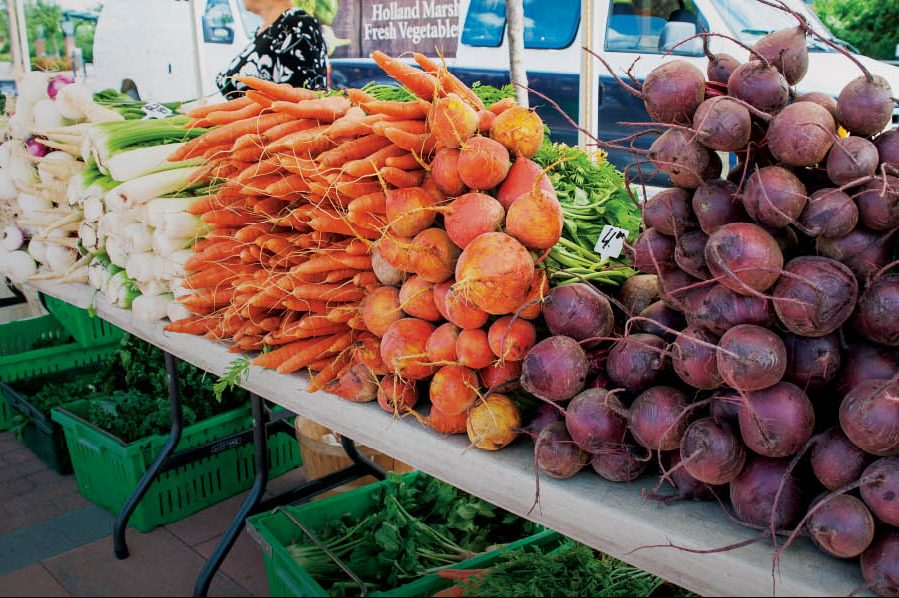How to buy local without the grocery store in Mississauga, Brampton and Caledon
Published May 2, 2024 at 11:57 am

Shoppers looking to avoid the cost of food prices at big box grocery stores can get locally-grown products close to home and help support farms across Mississauga, Brampton and Caledon.
The Grown in Peel program is a partnership between the region and dozens of local farms, giving residents more access to locally-grown food and produce.
And with some shoppers boycotting Loblaws-owned stores and a new report predicting grocery store food prices will jump again this year, shoppers can support local farmers and farm families without paying brand-name prices.
Some local producers include Albion Hills Community Farm in Caledon, which has plenty of farm-fresh products and pick-you-own pepper and tomato patches, Brampton’s Carl Laidlaw Orchards for apples and pears, and the Teddy Bee Honey Company in Mississauga.
An interactive map can help guide you to the right farm for you with plenty of products available locally from fresh, frozen or canned vegetables to farm-raised meats and honey, and even wine, beer and hard ciders.
If visiting a farm sounds like too much effort then the Grown in Peel website can also help you connect with producers at local farmer’s markets including the Erin Mills Farmer’s Market and Brampton Farmer’s Market.
For those that do want to make the trip, heading out to a local farm for a shopping trip can also be an educational experience with the region saying many producers are happy to show visitors how their food gets from the farm to their table.
Here are a few tips to remember before heading out to a local farm to make the most out of the shopping-local experience:
- Bring a cooler with ice packs to help keep perishable items cold (and safer) on the trip home
- Always remember to wash your hands before and after handling food
- All unpasteurized juices or ciders should be brought to a boil before drinking or serving them, particularly for children
- Park in designated areas only.
- Pick up only what is being sold – leave dandelions, mushrooms, and flowers in the ground
- Use the garbage cans provided (or take litter home)
- Always supervise your children
- Leave your pets at home
Some Ontario shoppers started taking their money elsewhere in a boycott of stores owned by Brampton-based grocer Loblaw on Wednesday – the same day the company reported more than $13.5 billion in profits so far this year.
The movement was born out of an online group on Reddit called r/loblawsisoutofcontrol which has grown to over 63,000 members looking for a place to complain about pricing and problems at Loblaw stores as well as other grocers. The boycott started on Wednesday and is planned to last for all of May with the goal of hurting Loblaw’s bottom line.
A report from researchers at several Canadian universities says that food prices will increase between 2.5 to 4.5 per cent this year, a slight drop from 5 to 7 per cent in 2023.
Canada’s Food Price Report 2024 found that customers are losing trust in food sector corporations, “a prevailing sentiment that grocers profit excessively and exploit inflationary trends.”
The report says a Canadian family of four will have an estimated $16,297.20 in grocery bills this year, up more than $700 from 2023.
insauga's Editorial Standards and Policies advertising






